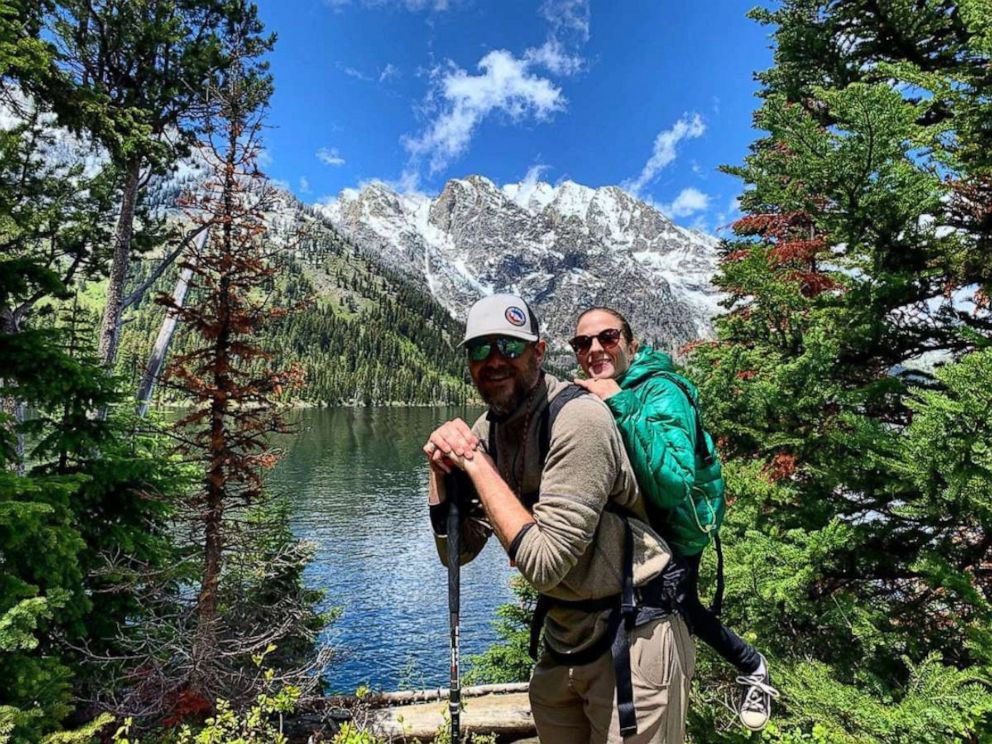She doesn't walk, and he lost his sight. Together, they're reaching new heights.
Melanie Knecht and Trevor Hahn help each other reach their peak.
Melanie Knecht was born with spina bifida, and Trevor Hahn lost his sight because of glaucoma five years ago. But together, they're climbing to the mountain tops.
"It just seemed like common sense," Knecht told "Good Morning America." "He's the legs, I'm the eyes -- boom! Together, we're the dream team."

The two live in Fort Collins, Colorado, and met at an adaptive boxing class. They ran into each other again a few weeks later at an adaptive rock climbing class and soon learned of each other's love of nature.
Knecht spent her childhood camping and exploring the outdoors, and recently went to Easter Island, where she was able to ascend steep cliffs in a carrier on someone's back.
Hahn always loved outdoor sports and continued doing them even after he lost his sight.
Hiking duo don't let disabilities stop them from climbing mountains
The pair decided to get creative to get out into the Colorado wilderness. So Knecht, secure in a carrier, is hoisted by a friend or hiking partner onto Hahn's back. He hikes along the trail while she gives him verbal directions along the way.
"I describe everything I see and exactly how Trevor needs to move," Knecht said of their hiking method.
The best part about hiking together, they said, is giving each other the opportunity to do what some would say is impossible.
"It made me so happy to help someone experience what I've been able to experience my whole life," Hahn said. "Just getting on top of a mountain, a car can't get to it, you just feel that sense of accomplishment. The best part is being able to make her smile. That gives me purpose."
And Knecht is able to feel free.
"I've been in a wheelchair my whole life, and it's an amazing feeling to leave it literally miles behind on the trail. I even couldn't get in it if I wanted to, and that's a great feeling," she said.
Another thing they said they love about hiking together is that they say they don't feel like a burden on one another.
Knecht said that there is guilt involved in asking able-bodied or sighted people for help and not being able to give the same back to them. With each other, they understand what it's like to live with a disability and assist each other on the journey.
"We go a little slower and need to take lots of breaks, but that's what we both need," Hahn said.
Because of their open-mindedness and creativity, they've been able to push past barriers. And they're encouraging able-bodied people to think more about how they can find adaptive solutions for their friends with disabilities.
"Ask questions of people with disabilities, to see what they like and what they want to do. Don't not include them because you think they won't be able to do something," Knecht told "GMA."
Knecht and Hahn plan to take things to the next level and climb what's know as a fourteener, a mountain that's above 14,000 feet tall. They've been training and plan to ascend in August.
They're proving to all of us that the sky's the limit.




